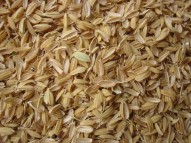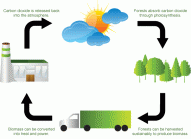Biomass
 Biomass definition
Biomass definition
Biomass is a generic term for any organic material that can be used to produce heat, electricity or transport fuel. The original energy source is from the sun (solar), which creates organic matter through a process called photosynthesis. Biomass is considered as a renewable source of energy that combats climate
more
 Basic characteristics of biomass
Basic characteristics of biomass
The main characteristics of biomass are: Moisture content Calorific value Volatile solids content Alkali metals content Ash content Density Feedstock Moisture content % Calorific value (Kcal/kg) Ash content % Wood 15 3700 0-1,5 Paper 6 3500 6 Bark cotton 9 3500 12 Straw 8 3400 2 Rice husk 9 2900 18-20 Olive kernel 20 4500 3,5-4,5 Peach kernel 5 4850 1 Pellets 10 4000 1,8
more
 Biomass Availability
Biomass Availability
The use of biomass is one of the key ways of ensuring the development of sustainable energy in Europe. The EU policies for biomass have achieved the increase of the energy that produced from renewable sources in 2010. The annual primary energy production from solid biomass amounted to 79.3 Mtoe
more
 Business plan
Business plan
Example A The scope of the example below is to prove the economic savings of using biomass as a fuel in an industry in comparison with crude oil. It can be assumed that the industry operates 24 hours per day for 250 days per year. In this industry there is a steam boiler
more
 Environmental Benefits
Environmental Benefits
In order to have an overview about the advantages of installing a biomass power plant we have to take into account also the environmental benefits. In this section are presented the environmental benefits of using biomass as a feedstock in comparison with crude oil. Crude oil Fuel CO2 SO2 CO NOx HC Particulates Crude oil 3175 14 0,565 5,363 0,188 1,832 Biomass combustion has significantly lower emissions
more









